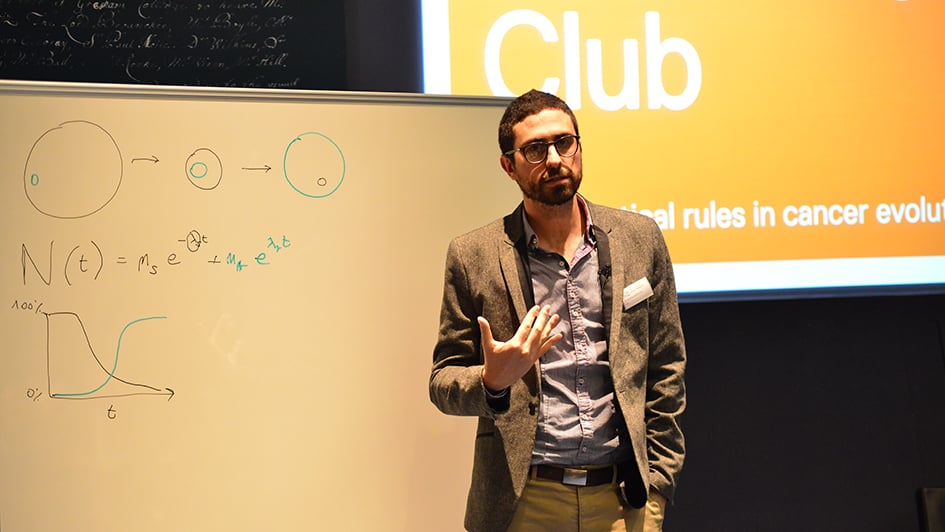
Dr Andrea Sottoriva speaks at the Discovery Club event in Central London (photo: Michael Wheeler)
Members of our Discovery Club gathered at The Royal Society in London earlier this month to learn about the role mathematics plays in modern cancer research and treatment.
Dr Andrea Sottoriva of The Institute of Cancer Research, London, took guests back to the classroom by demonstrating mathematical modelling principles on an old-fashioned whiteboard.
Dr Sottoriva, Chris Rokos Fellow in the ICR’s Centre for Evolution and Cancer, described the mathematical rules that govern cancer’s development, evolution and drug resistance. He showed members that mathematics can be used to describe how cancer cells evolve during the course of treatment and how understanding these evolutionary patterns could help us to fight the disease.
The March event, held at the Royal Society near Trafalgar Square in Central London, was attended by a record number of the Discovery Club members.
Professor Paul Workman, Chief Executive of the ICR, opened the evening by welcoming guests to the event and thanking supporters.
Co-speaker Dr Nicola Valeri explained how he sees patients in the clinic for whom current treatment has stopped working and how this has inspired him to collaborate with Dr Sottoriva to combat drug resistance. Dr Valeri is a clinician and ICR scientist working to discover new treatments and diagnostics for gastrointestinal cancers.
Dr Sottoriva said: “We can use mathematical models of cancer to predict what we see in the clinic, and if we can quantify these dynamic models we can find out very useful information about how cancer is responding to treatment, giving us new insight into the disease. Mathematical models give us a new window of opportunity to make clinical decisions about cancer treatment and resistance.”
The ICR’s Discovery Club offers a regular series of events for our high-level donors who are invited to join us for an evening to hear from some of our leading scientists and clinicians about their work. Through their philanthropic contributions, members help us drive forward our research in key areas of priority for our scientific strategy.